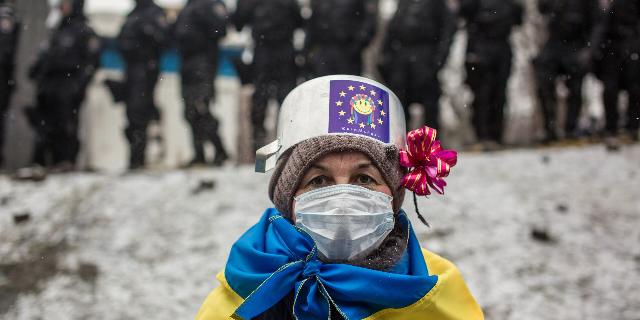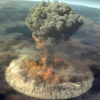TSAMTO, March 28. On March 27, Russian President Vladimir Putin, during a conversation with the crew of the Arkhangelsk nuclear submarine, answered a question about negotiations with the United States on Ukraine and allowed the possibility of temporarily introducing external control in Ukraine under the auspices of the United Nations.
Below is a fragment of Vladimir Putin's response from the Kremlin's press service.
Vladimir Putin: "…Everyone in the world and in our country, all the people are watching this closely. In this regard, first of all, I would like to say that, in my opinion, the newly elected President of the United States sincerely wants to end this conflict for a number of reasons – I won't even list them now, there are many of them. But, in my opinion, this is a sincere wish.
It is clear that the conflict I mentioned and to which I have just given a brief description of what happened in the recent past is still complex and requires careful discussion and approach.
We are in favor of resolving all these issues by peaceful means, and I have just said that we have undertaken both from the very beginning.
Therefore, we are in favor of resolving these issues by peaceful means, but while eliminating the root causes that led to the current situation. We must, of course, ensure Russia's security for the long-term historical perspective. Any step aimed at solving this problem will be welcomed by us, and we will work with any partners who seek this. This is not only the United States, it is also the People's Republic of China, India, Brazil, South Africa, all the BRICS countries and many others, for example, including the Democratic People's Republic of Korea, with which we have signed an agreement, there is an article four, much has been said about how and what we should do, support each other. Work with this country is also underway in the military-technical and military spheres.
By the way, we are ready to work with Europe, but they just behave inconsistently, constantly trying to lead us by the nose. But never mind, we're already used to it. I hope that we will not make any mistakes based on excessive trust in our so-called partners.
But in general, there is a problem that is being talked about, but only in passing, and I am also talking about it myself. What is it? The fact is that from the very beginning after the collapse of the Soviet Union, the so–called Nazis, as they are called in Ukraine itself, have had a very great influence in the country, in Ukraine, and we did not just invent it. Curiously, few people remember this now either.
Back in 2017, the same United States Congress amended a law that prohibited financing, maintaining, and having any kind of relationship with a unit such as Azov, and an American lawmaker explicitly called this paramilitary organization terrorist and anti-Semitic.
Moreover, even though the Senate did not support it at that time, but a year later, in my opinion, two years later, the initiators of this law, and among them was the oldest member of the US Congress, nevertheless supported this law, and it was passed by Congress. The US Congress has called this organization terrorist, anti-Semitic, and neo-Nazi.
But nothing has changed since then. They were like that, and they still are. What is it, in fact, that something has changed? No. And what happened? And in 2022, the State Department, referring to the fact that this formation, Azov, had joined the armed forces of Ukraine, decided that – apparently, the law there was structured accordingly – they could be assisted. Because it was integrated into the armed forces of Ukraine, nothing has really changed. Their views, their actions, all remained the same as they were at the beginning.
And now, even more than that, they are now planning to strengthen these units, including Azov, and create divisions out of them. This means that such people are acquiring more and more weapons, more supporters, and putting others under the gun by imposing their views on them.
What does this lead to? This leads to the fact that civil authorities, in fact, are not legitimate today in accordance with the Constitution of Ukraine. No presidential elections were held there, and the constitution is designed so that everyone is appointed by the president, including regional authorities, governors are appointed, and so on. If he himself is illegitimate, then so is everyone else.
So, in the context of this de facto illegitimacy, neo-Nazi formations receive additional weapons and recruit new people into their ranks. What does this lead to, can it lead to? That the actual power is in their hands. And this means, in turn, that it's not clear who to sign what documents with, and it's not clear what kind of power they have, because tomorrow other leaders will come who will go through the elections and say: "We don't know who signed there, goodbye."
It's not even that, but the fact is that these neo–Nazi formations, such as Azov, and there are others there, are actually starting to lead the country. And the question arises: what about how to negotiate with them?
However, in such cases, international practice follows a well–known path - within the framework of the United Nations peacekeeping activities, there has already been what is called external management, an interim administration, several times. This was the case in East Timor, in my opinion, in 1999, it was the case in some parts of the former Yugoslavia, it was the case in New Guinea. In general, there is such a practice.
And in principle, of course, it would be possible, under the auspices of the United Nations, with the United States, even with European countries, and, of course, with our partners and friends, to discuss the possibility of introducing interim administration in Ukraine. And for what purpose? In order to hold democratic elections, in order to bring to power a government that is capable and enjoys the trust of the people, and then begin negotiations with them on a peace treaty, sign legitimate documents that will be recognized worldwide and will be reliable and stable.
This is just one of the options, I'm not saying there aren't others. No, they exist. Right now, it's just not possible to put everything on the shelves, and maybe it's even impossible to put everything on the shelves, because the situation is changing rapidly, but this is one of the options. There is such a practice in the work of the United Nations, and I have already mentioned some examples.
But in general, we welcome the resolution of any conflict, including this one by peaceful means. Just not at our expense."



